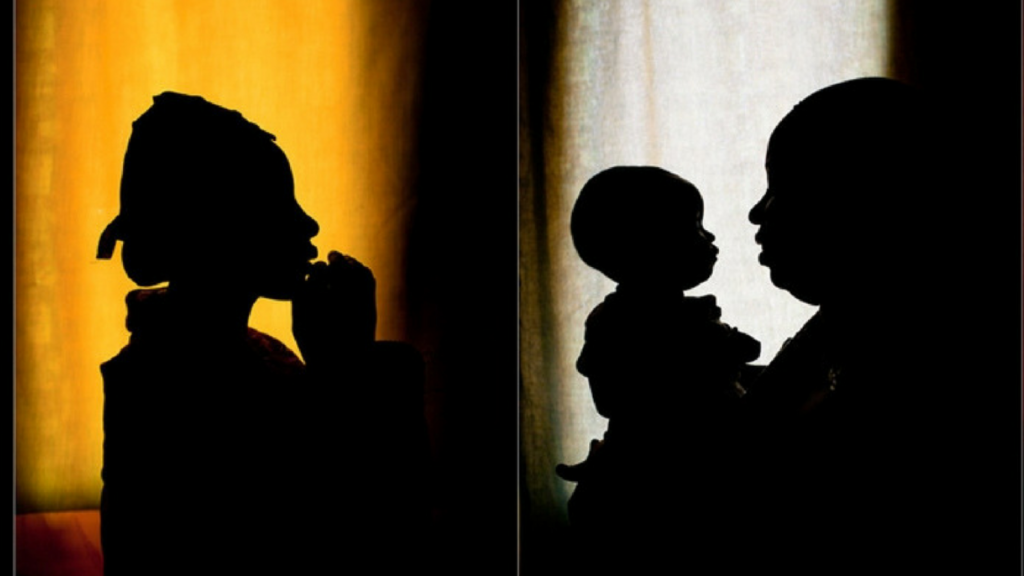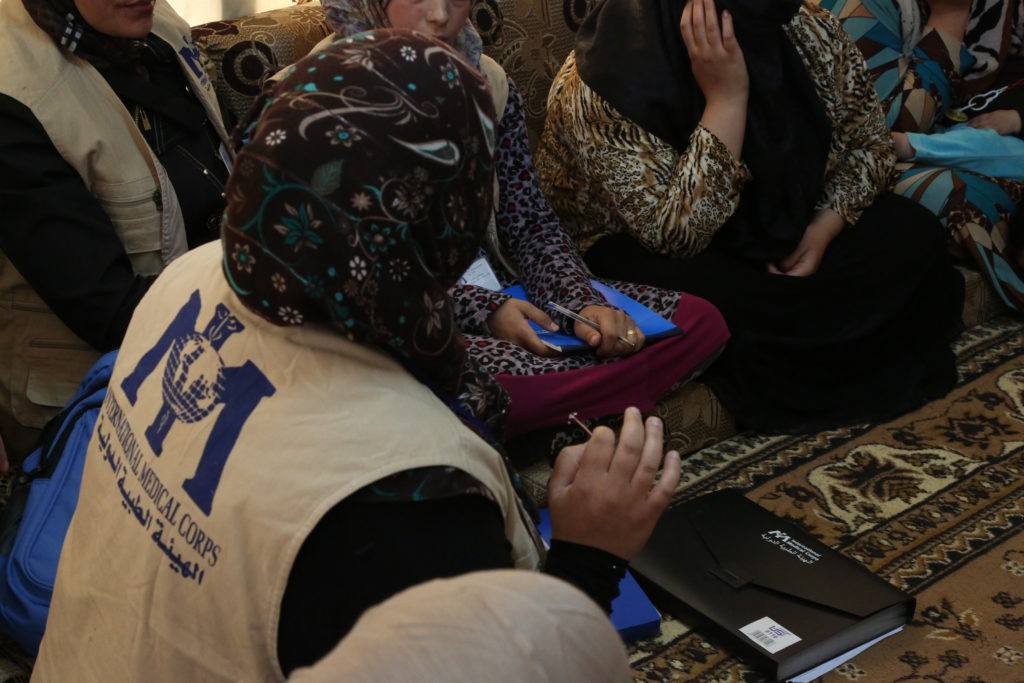Listening to the voice of someone who has been silenced, marginalized and even physically abused for years is a delicate task, but it’s one that International Medical Corps is determined to embrace as we look to help and heal those who have suffered from gender-based violence (GBV).
GBV is defined as an action toward someone based on their gender that could or does result in physical, mental or sexual harm. Tragically, it remains a pervasive issue across the world — in fact, one in three women have been beaten, coerced into sex or abused in some way, according to the United Nations Populations Fund.
This figure is likely much higher among women who live in fragile, precarious environments where they are vulnerable due to both a lack of security and derogatory cultural attitudes toward women.
International Medical Corps is combating GBV through a holistic response comprising of education, prevention and the provision of physical and mental health care to survivors. By tailoring our work to specific contexts and cultures, we’ve had success in some of the most challenging environments across the world, including Pakistan, Somalia and Russia. However, to achieve the ultimate goal of completely eradicating GBV, there is still much that can be improved, including gathering first-hand feedback from those who’ve accessed our GBV services.

Due to the sensitive nature of the topic and frequent anonymity needed when speaking to those who have suffered from GBV, it can be difficult to gather feedback from those who have accessed GBV services.
Traditional approaches to gathering feedback have centered on quantitative methods that often work either on a scaled system or with closed questions where no further feedback can be given. Such a limited scope for response within a complex and emotionally fraught field like GBV has proven challenging, especially when looking to instigate changes to our services based on survivors’ feedback.
We are currently trialling the SenseMaker®, an innovative software tool that will provide an opportunity for those who use our GBV services to give their honest opinions, recommendations and challenges experienced in accessing services.
The SenseMaker, developed by Cognitive Edge, is based on the idea that storytelling is a natural way to express complex – and often difficult – personal experiences. It can be used on any device and allows GBV survivors to tell their story – either through an audio recording or a typed entry, in their own words, in their own time, in as much or as little detail as they feel comfortable sharing. The software collates and processes the recording, comparing it to previously submitted stories before generating a set of questions that are designed to elicit further feedback.
The stories are shared anonymously and the questions tailored to the individual, helping to create a comfortable, personal and open feedback experience. By creating a safe space in which GBV survivors are free to provide honest feedback on accessing and using our GBV services, we hope to use the information given to improve the services and counselling we provide.
The SenseMaker is being implemented by six organizations, including International Medical Corps, form the end of May until mid-August in Lebanon as part of the Humanitarian Innovation Fund’s project entitled “Exploring New Ways to Improve Monitoring and Evaluation of Gender-Based Violence Interventions in the Humanitarian Settings.”
Lebanon is a country that ranks extremely low in gender equality, and where rates of gender-based violence are staggeringly high, especially within the family structure: 65% of all reported incidents are committed by family members. This is compounded by fragile political dynamics, a massive refugee crisis and an estimated 3.3 million people in need of humanitarian assistance. Despite these challenges, International Medical Corps has a strong presence in Lebanon and is working to combat GBV among those it helps, starting at a young age.
Our Youth Empowerment Programs work with children through community-based projects to raise awareness of GBV concerns and to combat negative societal beliefs help about women. We also hold community awareness sessions about women’s empowerment that are designed to help women thrive in society. We combine these preventative and educational methods with the training of healthcare professionals and provide GBV case management and counselling services open to all through safe spaces and community centers across Lebanon.
Through our wide-ranging services, we are able to reach thousands of men, women and children with awareness-raising messaging, and provide close to 10,000 consultations annually to GBV survivors and other vulnerable women and girls.
As we provide care to those who have suffered and are suffering from GBV we will continuously look to improve our services any way we can, to better serve those who access them. Manal Kassem, International Medical Corps’ GBV Coordinator in Lebanon, is excited at the potential the SenseMaker offers:
“It will help us evaluate our services since it is considered an easy user-friendly tool that can be used for collecting feedback regarding services we provide in general. The fact that it includes story telling using the women’s voice and the words give more credibility and value to the information collected.”
